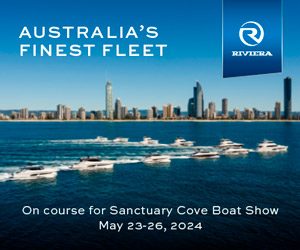Safety can never be emphasised enough when it comes to boating. After all, the boat and everyone on board are always subjected to the elements of nature that can be very fickle. Kyle Turner simplifies for us the legal obligations of all boat owners and operators.
The Transport Operations (Marine Safety) Act 1994 (TOMSA) imposes a number of general safety obligations on all boat owners and operators to operate their vessels safely at all times. These obligations require boaties to ensure that their boat is: safe; properly equipped and maintained; and operated in a safe manner. It is important that all boaties remain aware of these obligations while enjoying their time on the water.
Vessel be safe, than sorry.
Section 41 of the TOMSA puts an obligation on boat owners not to operate a ship unless the ship is deemed to be safe. For the purposes of the legislation, a ship will be deemed ‘safe’ if it is seaworthy, and is appropriately equipped and crewed, to meet the foreseeable dangers of the voyage on which the ship is proceeding. To ensure that you satisfy this provision, it is important to always plan ahead before setting sail to make sure that your boat is adequately equipped, and prepared for any foreseeable events that may occur along the way.
You’re the skipper. You’re responsible.
Section 43 of the TOMSA outlines the general obligations of any person involved in the operation of a ship. This section essentially makes any owner, master, pilot or crew member involved in the unsafe operation of a vessel liable in the event that a marine incident is caused. So although some of us may be tempted by a cold drink or two while cruising the waters on a hot summer’s day, it is important to take it easy on the alcohol and ensure we remain alert at all times while operating our watercrafts.
What is a marine incident?
According to section 123, a marine incident can include a number of occurrences, including: material damage being caused to a ship; the grounding, capsizing or stranding of a ship; or any event resulting in the serious injury or death of a person caused by the ship’s operations. Boaties have an obligation under this legislation to report any marine incidents to a shipping inspector within 48 hours. If you ever find yourself in a situation where you are unsure whether a marine incident has occurred, it is always a good idea to report it anyway.
Safety Equipment
Section 44 of the TOMSA then goes on to outline the obligations regarding the safety equipment required on board a vessel. Put simply, it states that if a ship is required by a regulation to be equipped with certain safety equipment, then it is unlawful for any person to operate the vessel without such equipment on board.
While there are some boats that are not required by law to carry regulated safety equipment, it is still important to always consider your general safety obligations as a skipper when deciding what equipment to take on board. After all, if you find yourself in an accident on the water and you have failed to carry a piece of equipment that could have helped to prevent the incident, then you are still liable for prosecution.
Comply for safety
Recent safety equipment checks by Maritime Safety Queensland compliance officers found that some boaties actually have better access to their eskies and fishing tackle than to their life jackets and other safety equipment.
While it may be easy for a boatie to be distracted by that perfect catch or the excitement of towing the kids around the waterways, it is important for boaties to be aware of the rules implemented in 2012 requiring owners and captains of boats to ensure that each person on board knows where all the safety equipment is kept and how to get to it in a hurry.
Helpful tips for a responsible skipper:
- Ensure that your boat is well maintained and in good condition.
- Check the weather before you head out.
- Check that you have all the required or necessary safety equipment on board and make sure everybody on board knows where to access it in the case of an emergency.
- Go easy on the alcohol! It is important to be alert at all times while operating your boat.
- At the first sign of trouble, get everyone on board to put their life jackets on. If they’re not on, they won’t keep you afloat!


























